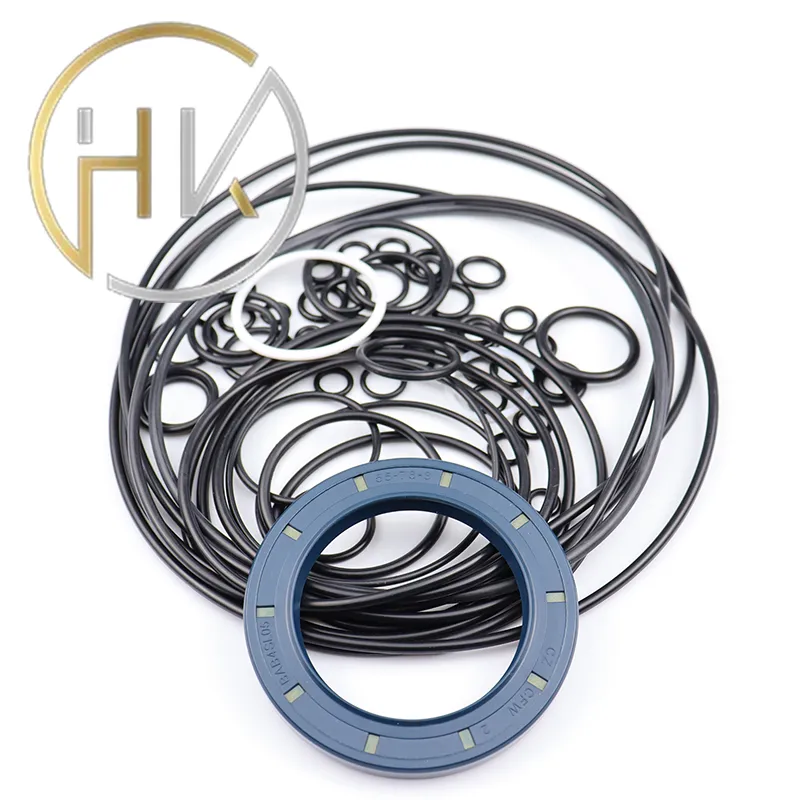Dec . 18, 2024 05:31 Back to list
wheel oil seal
Understanding Wheel Oil Seals Their Importance and Functionality
When it comes to vehicle maintenance, one of the often-overlooked components is the wheel oil seal. Although small and seemingly insignificant, these seals play a crucial role in ensuring the proper functioning of a vehicle's wheel assembly. In this article, we will discuss what wheel oil seals are, their functions, the materials used in their construction, and the importance of regular maintenance.
What is a Wheel Oil Seal?
A wheel oil seal is a component designed to prevent the leakage of lubricants from the wheel assembly, especially in vehicles with bearings that require lubrication. These seals act as barriers, keeping the oil contained within the housing while preventing dirt, dust, and moisture from entering. In essence, they help to maintain the integrity of the lubrication system, ensuring that the bearings operate smoothly and effectively.
Functions of Wheel Oil Seals
1. Preventing Oil Leakage The primary function of a wheel oil seal is to prevent lubricant from leaking out of the wheel hub. When oil leaks, it can lead to inadequate lubrication, which in turn can increase friction and wear on the bearings, resulting in premature failure.
2. Protecting Against Contaminants Wheel oil seals also serve as a protective barrier against external contaminants such as dirt, grime, and moisture. By preventing these elements from entering the wheel assembly, oil seals help maintain the cleanliness and functionality of the bearings.
3. Enhancing Lifespan Properly functioning wheel oil seals contribute to the overall lifespan of the wheel bearings. By ensuring that the lubrication is retained and contaminants are kept at bay, oil seals help reduce the risk of premature wear and failure, ultimately extending the life of the components they protect.
Materials Used in Wheel Oil Seals
wheel oil seal

Wheel oil seals are typically constructed from rubber or a combination of rubber and metal. The choice of material depends on various factors, including the application, environmental conditions, and the specific requirements of the vehicle.
1. Rubber Most wheel oil seals are made from synthetic rubber compounds due to their excellent sealing properties, resistance to wear, and ability to withstand a wide range of temperatures. Common types of rubber used include nitrile butadiene rubber (NBR) and fluoroelastomer (FKM).
2. Metal Reinforcement In some designs, a metal reinforcing ring may be incorporated into the seal to provide additional support and maintain the seal's shape under pressure. This reinforcement helps prevent deformation and enhances the seal's durability.
Importance of Regular Maintenance
Despite their robust construction, wheel oil seals can wear out over time. Regular inspection and maintenance of these seals are essential to ensure optimal vehicle performance. Signs of a failing oil seal may include oil leaks around the wheel area, unusual noises from the wheel bearings, or a decrease in fuel efficiency.
Drivers should be proactive in addressing these issues. If a leak is detected, it is crucial to replace the oil seal promptly. Ignoring a failing seal can lead to more extensive damage to the bearings and, in worst-case scenarios, can compromise vehicle safety.
Conclusion
Wheel oil seals may be small components, but their role in vehicle performance cannot be understated. By preventing oil leakage and protecting against contaminants, they help maintain the health of the wheel bearings and prolong the lifespan of critical components. Regular inspection and maintenance of wheel oil seals are vital for any vehicle owner, ensuring a smooth ride and safe operation. By understanding and caring for these essential parts, drivers can enjoy reliability and performance from their vehicles for years to come.
-
TCN Oil Seal Metal Ring Reinforcement for Heavy Machinery
NewsJul.25,2025
-
Rotary Lip Seal Spring-Loaded Design for High-Speed Applications
NewsJul.25,2025
-
Hydraulic Cylinder Seals Polyurethane Material for High-Impact Jobs
NewsJul.25,2025
-
High Pressure Oil Seal Polyurethane Coating Wear Resistance
NewsJul.25,2025
-
Dust Proof Seal Double Lip Design for Construction Equipment
NewsJul.25,2025
-
Hub Seal Polyurethane Wear Resistance in Agricultural Vehicles
NewsJul.25,2025
-
The Trans-formative Journey of Wheel Hub Oil Seals
NewsJun.06,2025
Products categories
















